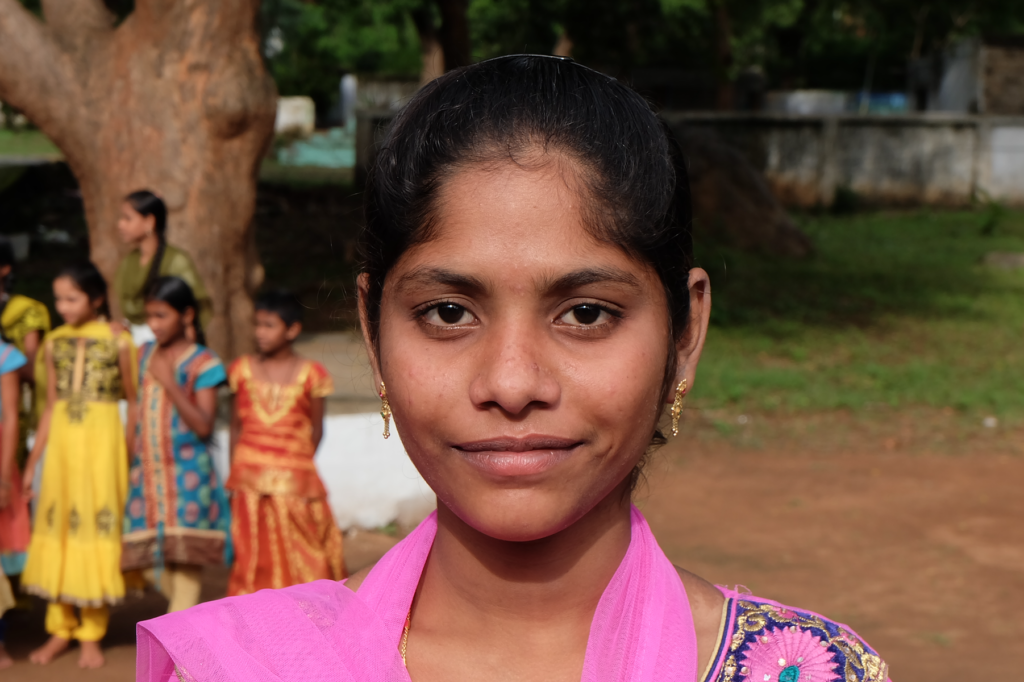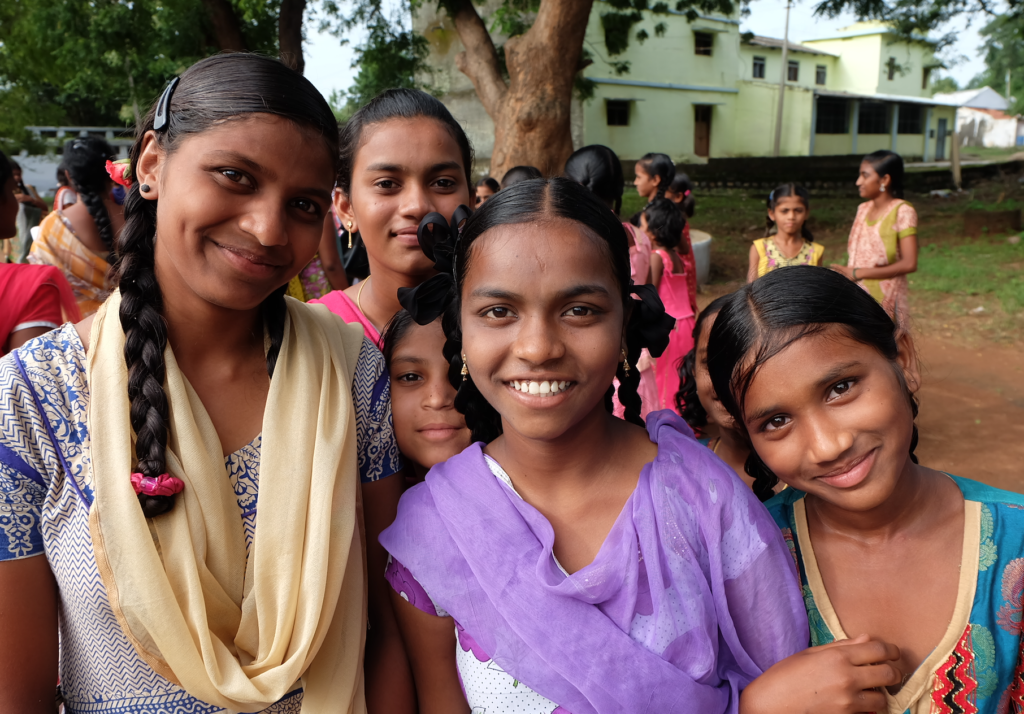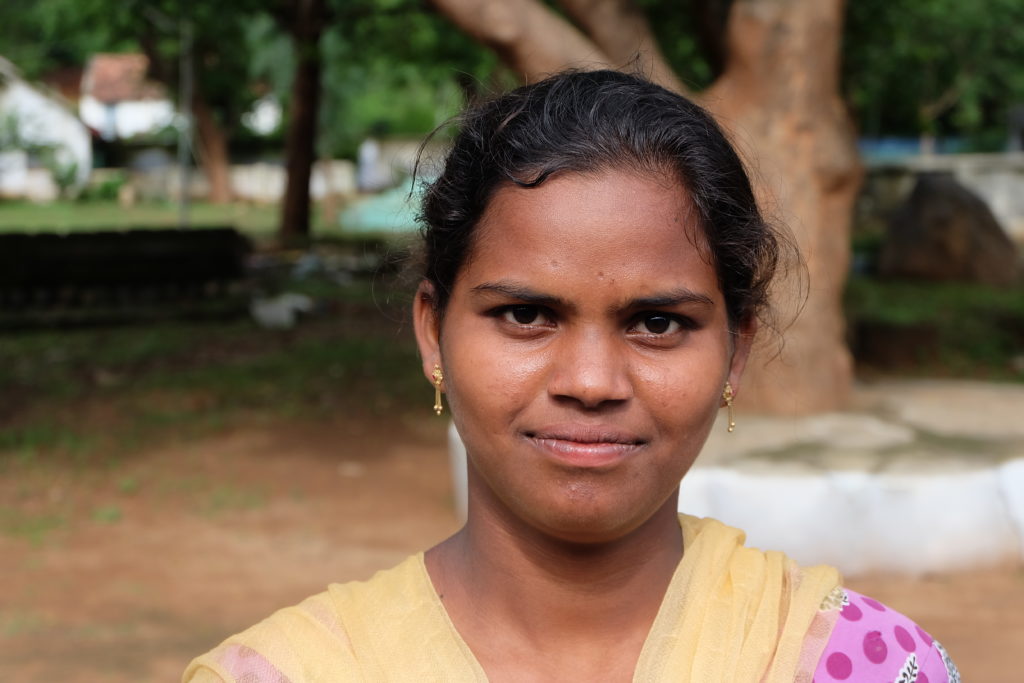facts about The Dornakal Girls’ Hostel:
- Grade Served: Kindergarten – high school
- Facility Description: Located in the Dornakal Cathedral Compound adjacent to a theological college and a hospital, the girls’ hostel comprises a dormitory, study hall, mess hall, and a bathroom facility. There is ample space for sports and games, as well as fields where small gardens are maintained.
- Education: Most of the girls here attend school all the way through junior college (eleventh and twelfth-grade equivalents). Core academic subjects are taught in Hindi in the lower elementary grade levels and then (from the fifth grade on) in English.
- Academic Schedule: In India, the school year varies somewhat by region but typically begins in late June and ends in late April, with a two-to-three-week break in December.
- Nutrition: Three nutritious meals are served each day, and the girls actively participate in preparing these. This not only fosters a sense of responsibility but also promotes healthy eating habits.
- Daily Schedule: As education is the primary focus for the girls enrolled here, a typical day revolves around studies but also includes completing various chores to maintain the hostel, gardening, dancing, musical activities, and homework in the evenings.
From the snowcapped Himalayans to tropical beaches, India is truly a nation of contrasts. It boasts a rich history spanning tens of thousands of years. In fact, the earliest known civilization in South Asia once called India’s fertile Indus Valley home. Today, with the world’s second-largest population, India includes a staggering variety of ethnicities, languages, religions and cultures. Its wealth of natural resources and vibrant cultures, however, belie the abject poverty in which so many of India’s citizens live.
The town of Dornakal, in the southeastern Indian state of Andhra Pradesh, is no exception to these maladies. Within this rice-producing region, many aboriginal people live in villages of primitive huts. Staunchly independent from mainstream Indian society, they often subsist on roots, tubers and berries. In this impoverished area, the Dornakal Girls’ Hostel serves as a beacon of hope. Since its founding in the 1970s, the hostel has provided countless girls from surrounding tribal settlements with education, encouragement and a window into the outside world. Its mission remains to provide for these deserving girls’ immediate needs, while also investing in their future. The well-rounded education that students receive here may help them break the cycle of poverty and rise above the difficult socioeconomic circumstances from which they come.
Facts about india:
- Population: 1.366 billion
- Languages Spoken: Hindi (41%), Bengali (8.1%), Telugu (7.2%), Marathi (7%), Tamil (5.9%)
- Unemployment Rate: 6.5%
- Poverty Rate: 21.9%
READ MORE STORIES FROM OUR sites IN India:
Involving Parents in Education in India
Our Founder’s Father, Honored in India



